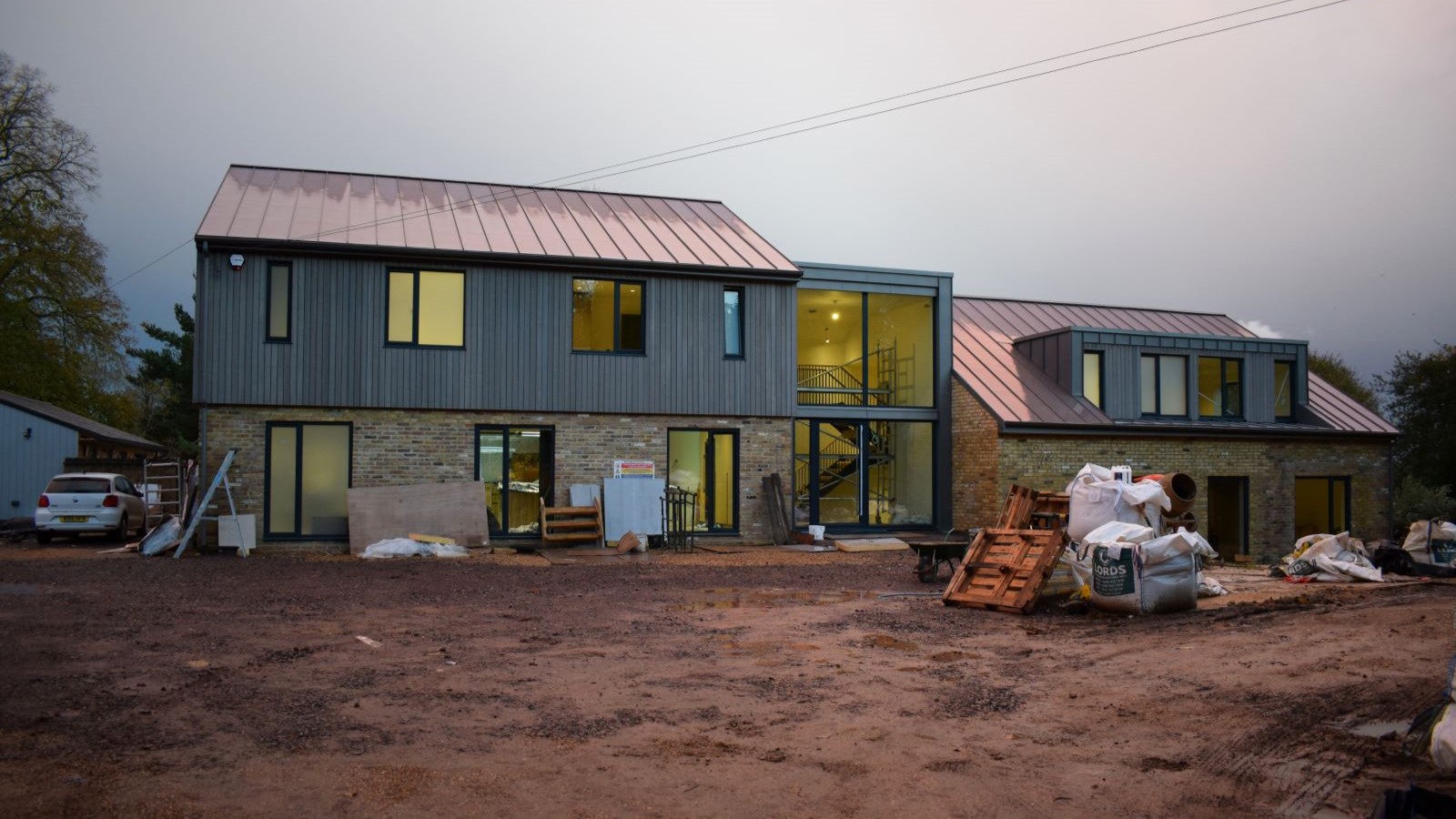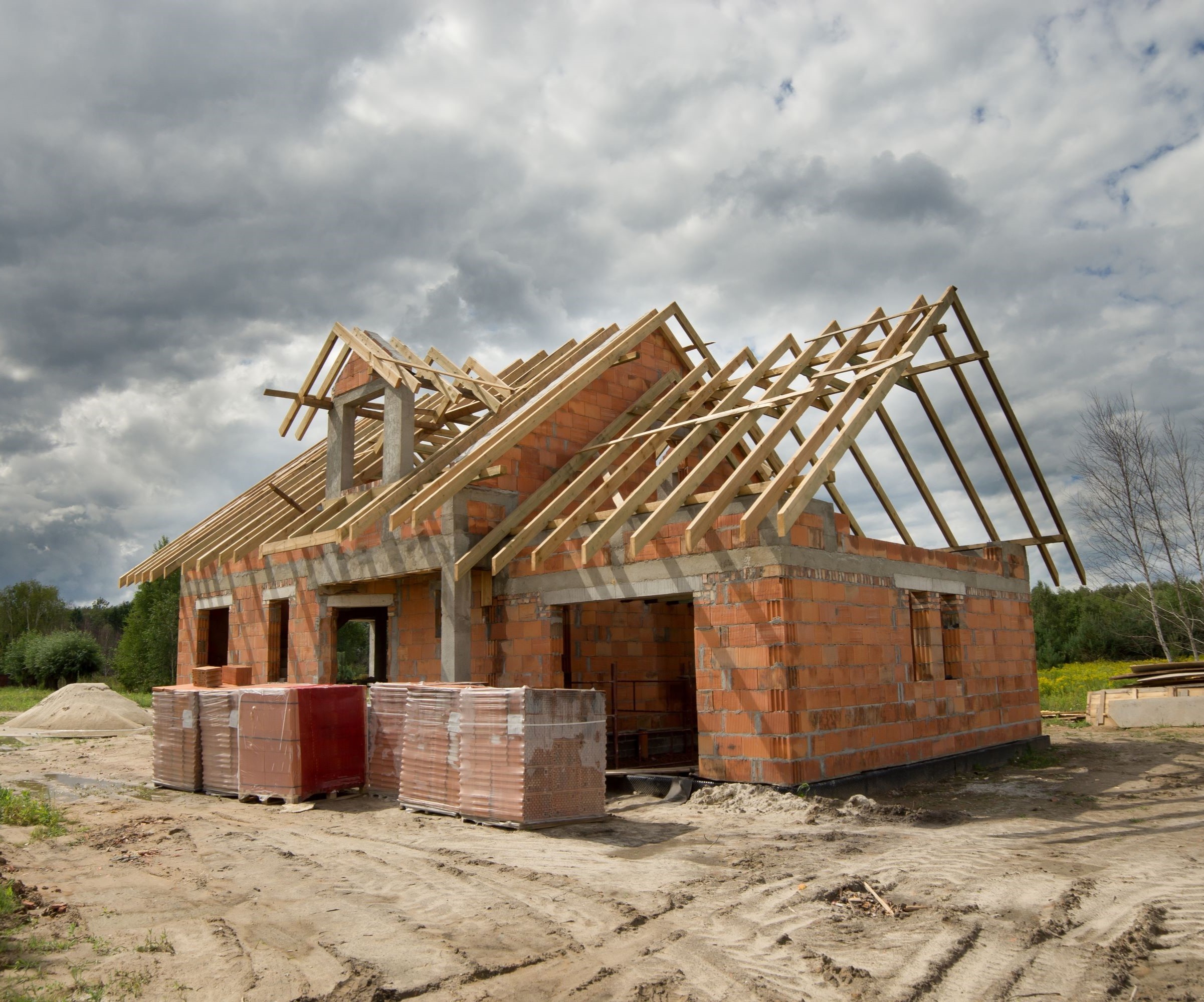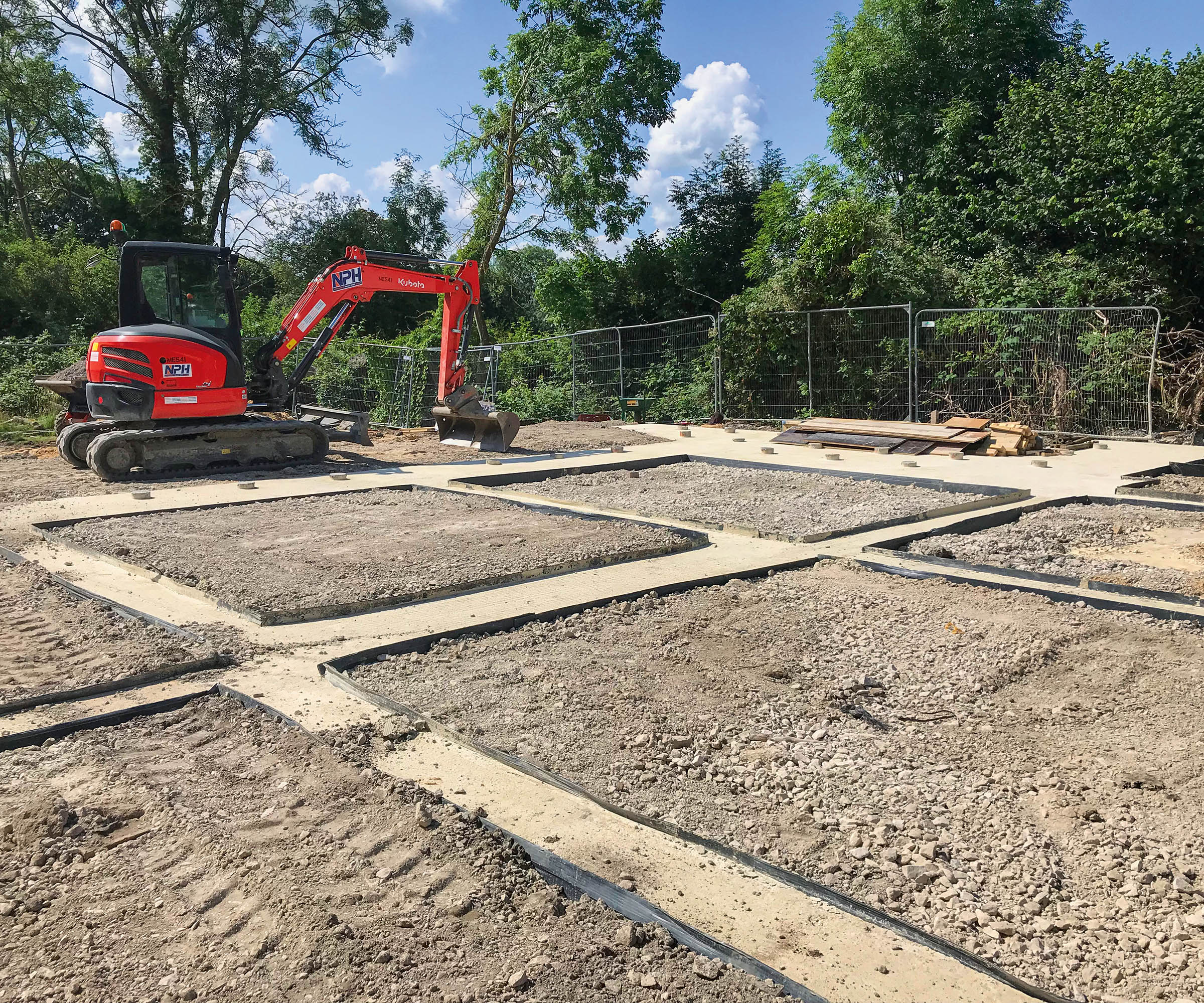I'm a self build expert and here's my advice for managing your own self build
Thinking of managing your self build? Mark Stevenson gives his advice on how to make building your new home as stress-free as possible

- 1. Decide on a project manager
- 2. Do your research
- 3. Get professional support
- 4. Organisation is key
- 5. Set a realistic budget and track it
- 6. Design first, build later
- 7. Have a build programme
- 8. Be patient, don’t rush
- 9. Focus on quality, not just speed
- 10. Effective communication
- 11. Don't panic
Building your home is undoubtedly rewarding, but self-managing your project comes with its own unique set of challenges so it’s important to go into it with eyes wide open, especially if you’re a beginner.
The good news is that with proper planning, organisation, and a willingness to learn, managing your own self-build is entirely possible.
This article explains the key aspects of project management for a self-build, from deciding if it’s right for you, to practical tips for keeping everything on track.
1. Decide on a project manager
Before diving into managing your own self-build, it’s important to assess whether you’re cut out for the role of project manager. Many self-builders take on this task not because they think they’ll be particularly good at it, but because they feel like they have no other option – usually due to budget constraints or an inability to find a reliable project manager. While it’s entirely possible to take on this role yourself, it requires commitment and a certain set of skills.
Project managers need to be organised, decisive, and comfortable managing both people and budgets. They need to be able to coordinate tradespeople, manage materials, and make decisions. If you’re the kind of person who thrives under pressure and can multitask without getting flustered, then this role might suit you. But if you’re easily overwhelmed or aren’t particularly comfortable managing others, it might be worth reconsidering. Also, keep in mind that even if you have all the necessary skills, you need to be present. There’s no point being being a great PM if you have a full-time job or other commitments and are hardly ever on site.
2. Understand the self build process
Building projects are complex, and there’s no single source that will tell you everything you need to know. However, getting clued up before you start is absolutely essential. There’s tons of resources available for first-time self-builders, from books like The Housebuilder’s Bible by Mark Brinkley, available on Amazon, to courses on construction and project management, which will help you understand what you’re getting into and how to handle the inevitable challenges.
Online resources, such our own homebuilding.co.uk website, are also invaluable. Many self-builders find that the more they understand about the construction process, the better prepared they are to make informed decisions.
3. Get professional support
Even if you’re managing your build, you’re still going to need professional support. At a minimum, you’ll need to choose an architect or building designer to draw up plans, engineers to make sure things stand up, and a host of surveyors to help with the costs to managing ecology. While it’s tempting to think you can save money by cutting down on professional input, this can often backfire. Professionals not only bring expertise but also help you avoid costly mistakes.
Don’t forget that even though you’ve hired professionals, you still need to manage them. It’s your job to make sure they’re aligned with your vision and are working within budget. While professionals will help with specific tasks, the ultimate responsibility for the project remains with you.
4. Be strict with organisation and timelines

The secret to a smooth build lies in organisation. Every trade needs to arrive on-site at the right time, with the necessary information and right materials ready to work with. As the PM, it’s up to you to make sure this happens. A disorganised site not only causes delays but also drives up costs. Tradespeople don’t like disorganisation and may refuse to work on a chaotic site, and delays in one area often snowball across the entire project.
Before anyone sets foot on-site, make sure the area is clean, organised, and ready for them. This not only keeps things running smoothly but also keeps everyone happy and motivated and more likely to do their best work.
5. Set a realistic budget and track it
Money is often the source of stress for self-builders. One of the most common mistakes is not setting a realistic budget at the outset, which includes a reasonable contingency for unexpected costs. The reality is that things will go wrong – whether it’s a delay on site, unforeseen design issues, or a last-minute change. Without a contingency fund, even small setbacks can throw your budget into chaos.
Tracking your budget throughout the build is just as important as setting it in the first place. Keep an eye on spending, and don’t be afraid to cut costs in one area if another starts to spiral out of control. This means staying on top of quotes from contractors, carefully checking invoices, and being prepared to make tough decisions. Don’t assume your contractors will prioritise your budget – they’ll have their own financial pressures, so be vigilant.
6. Complete your designs before building
Before you start building a house, make sure every detail of your design is sorted. This might sound obvious, but too many self-builders fall into the trap of making knee-jerk decisions as a result of incomplete design. This approach can lead to having to redo work or having to invent innovative design solutions when certain features prove to be incompatible with the overall design.
The design offers the biggest bang for your buck and should take into account regulations, quality standards, and budget limitations. It’s best to work closely with the design team to finalise everything well before you think about building it. By having a detailed design in place, you’ll reduce the risk of miscommunication and costly changes down the line.
7. Have a build programme

A well-thought-out build programme is the backbone of any successful project to keep your self build on track. Many projects fall off track because activities aren’t sequenced correctly or because tradespeople aren’t properly coordinated. A build programme is essentially a “to-do” list that outlines what needs to happen and when.
Consult with your tradespeople to create a realistic timeline. They’re often more than happy to provide input, as an efficient plan benefits everyone involved. Having a programme in place allows you to monitor progress and keep the project moving smoothly, but remember the programme is a living document as things will change. When they do adjust the programme to account for delays or other unforeseen events to keep the build moving in the right direction.
8. Be patient and don’t rush decisions
One of the most challenging aspects of self-building is managing the pace of the project. It’s tempting to want to get everything done as quickly as possible, but rushing through a build often leads to mistakes. Construction is a process, and everything needs to happen in the right order for the project to be successful.
For example, if one part of the build – like completing the roof tiling – gets delayed, it will have a knock-on effect on the rest of the build. By accepting that delays are part of the process and building some flexibility into your timeline, you’ll reduce your stress and ensure that the quality of the build doesn’t suffer.
9. Focus on quality and not just speed
At every stage of the build, you need to ensure that the work being done is of a high standard. A rushed build can lead to poor-quality work, which may cost more to fix in the long run. It’s your responsibility to check the quality of the work before moving on to the next stage so conduct regular inspections, and if you’re not sure what to look for, ask for help.
Don’t be afraid to ask for work to be redone if it doesn’t meet regulatory standards or your expectations – just make sure that your expectations are reasonable.
10. Effective communication is vital
A successful build hinges on clear, consistent communication. You’ll be dealing with a wide variety of people – contractors, suppliers, professionals – so it’s crucial that everyone is on the same page. Miscommunication can lead to costly mistakes, so make sure that instructions are clear and understood by everyone involved.
Always confirm verbal agreements in writing and make sure everyone knows what’s expected of them. Being a good communicator also means being able to listen. Tradespeople and contractors often have valuable insights, so take their feedback into consideration when making decisions.
11. Don't panic when things go wrong
Finally, it’s important to remember that things will go wrong at some point. When they do, don’t panic. The key to successful project management is being able to solve problems quickly and make decisions confidently. Whether it’s a delay in materials, a problem with the design, or a disagreement with a contractor, you’ll need to take charge and address the issue before it spirals out of control.
In the end, managing your own self-build can be incredibly fulfilling, but it’s not for the faint of heart. It requires dedication, organisation, and a willingness to learn on the job. But with careful planning and a team ethic, there’s no reason why you can’t build your own home – on time and within budget.
Deciding what materials to use for your self build is often one of the first choices to make, and this can be even before applying for planning permission.
Timber frame is often popular as it allows for a speedy build time as well as its affordability. Meanwhile, building with masonry might be preferred by mortgage lenders. However, when looking at how to choose your construction system, other factors will come into it too, such as what neighbouring homes are made from. As such, it is well worth weighing up timber frame vs masonry early on in the build process.
Bring your dream home to life with expert advice, how to guides and design inspiration. Sign up for our newsletter and get two free tickets to a Homebuilding & Renovating Show near you.
Mark Stevenson has worked as a construction professional for over 30 years and following an extensive career in housebuilding. He is currently chief operating officer for Custom Build Homes and chair of the National Custom and Self Build Association. He previously worked as managing director for Potton, helping self builders build their own homes.
Whilst Mark describes himself as a ‘professional builder’ as a result of his career in housebuilding and timber building system manufacturing, he has specialist knowledge of timber construction and extensive expertise in finding land and project management.
He regularly shares his knowledge at Homebuilding & Renovating Shows and and coaches self builders about how to build their own homes. Aside from Mark’s professional career, his skills also extend to practical building knowledge as a skilled joiner, hands-on renovator and serial self-builder of his own development projects.
He is also Vice Chair of industry body, the Structural Timber Association.

